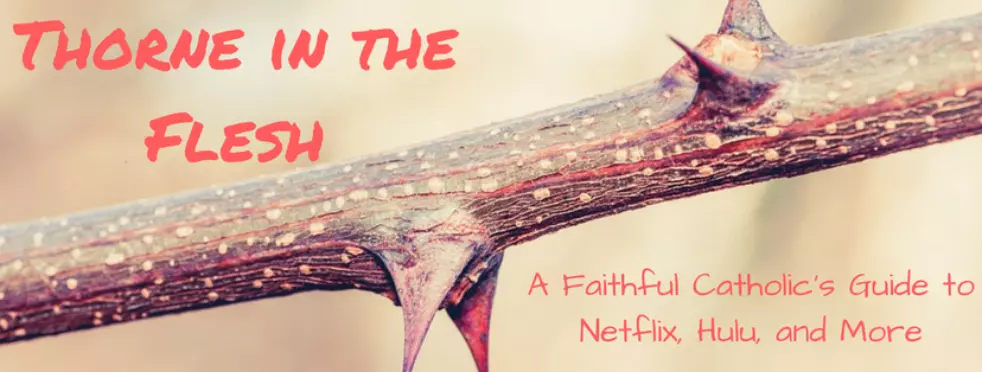
House of Cards wasn’t really on my radar as something I wanted to watch. It wasn’t in my Netflix queue, and I honestly didn’t know too much about it. Then one day I was on the outskirts of a conversation with some fellow Christian screenwriters (who, obviously, talk a lot about the best movies and TV whenever they get together!) and they were talking about how much they liked the show. In fact, they were talking about a specific episode that was extremely Christian in the subtle way that is often most effective. They were saying how the main character Frank Underwood, in this particular episode, was having some kind of existential issues that lead him to a church, and that he ponders religion and morality, but in the end goes back to doing his anti-hero Frank Underwood terrible things. Listening to this, I was intrigued.
Soon after, as Luke and I finished up our then-current nightly show and fell into our recurring show-hole*, we decided to give House of Cards a try.
From the first episode, it was not hard to see why the show had received such critical acclaim. It pulled us in immediately, and we had to keep watching, had to know what other terrible things the corrupt politician Frank Underwood would do next (that’s a basic summary of the entire premise right there).
Now I don’t think there is necessarily something inherently immoral in an anti-hero show like this. Do they leave us rooting for a bad dude to do more bad things? Perhaps, but not necessarily. It might depend partially on the moral state of the viewer himself, but Luke and I rather found ourselves cringing and hoping what we knew to be a futile hope, that Frank Underwood would do something that wasn’t terrible. Sort of like a trainwreck – you know he’s going to do terrible things, and yet you watch anyway, cringing and hoping that it somehow won’t be so very terrible after all.
The Nitty Gritty
This show is rated MA, and with good reason.
There’s plenty of language, which doesn’t really bother me much, as long as the kids are asleep. So for that alone, we wouldn’t have stopped watching.
There’s some violence, but it’s nothing of the eeeeeek variety you’d find in something like “The Walking Dead,” for example.
There’s a pretty clear pro-abortion bent in the show, referencing Frank’s wife’s abortions as if it’s not a big deal; but considering that the characters’ moral corruption is already kind of a given, this wasn’t a deal-breaker for us – it’s not the same as if a character we were supposed to admire was saying abortion is no big deal.
So what is the over-riding moral issue a good Catholic has to worry about with this show?
The sex.
There is a lot of it.
Now some sex scenes in movies or shows are brief, quiet, easy to look away from and wait out. That’s not the way House of Cards sex scenes are.
Some sex scenes are much more graphic but fairly easy to fast-forward. This is more the variety we found in this show. But I think the sheer volume of sexual material would have been enough to make us hesitate to even start watching it, had we known beforehand. I would estimate that we were fast-forwarding a scene at least once per episode. In any show less compelling, I think we would have been annoyed enough to turn it off fairly quickly. But the plot-line was just so good, we had to know what was going to happen next.
The Final Straw
We watched the whole first season and part of the second season, until “Chapter 18.” This episode opens with something that shocked us, made us pause it, made us fast-forward, and left such a disgusted taste for us that weren’t sure we could go on. Having fast-forwarded, we weren’t entirely sure what exactly the scene was, so we Googled. And learned it was just as disgusting as we had thought.
This opening scene was a strange depiction of a three-way sexual encounter with… asphyxiation? Apparently that’s a thing.
We said enough is enough and reconciled ourselves to the fact that we would never know what other terrible things Frank Underwood would do, never get to see what kind of crisis he has that drives him temporally to a church; never know if he gets caught (though that would pretty much be the end of the show), and never know if he stops being so terrible (again, show over). Because it was just too disgusting and left us feeling like we were losing innocence.
Are we more sensitive than some people? Perhaps. Is it possible to watch this show and not have it affect you negatively? Probably. But we had to walk away and decide that there were better shows to get wrapped up in.
*Show-hole: that deep dark place one finds himself upon completing a Netflix series and having no good idea of what to watch next.
